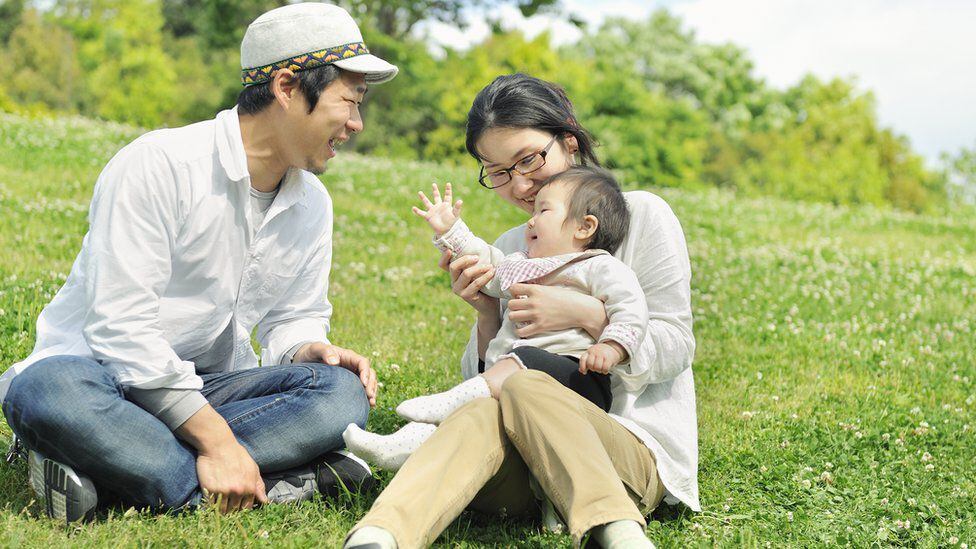“Japan It is at a critical point to be able to continue functioning as a society”.
Those were the words spoken by the Prime Minister of Japan, Fumio Kishidain a speech before congressmen in which he warned that the country may lose its viability due to the fall in the birth rate.
Look: Japan will dump contaminated and treated water from the Fukushima nuclear power plant into the sea in spring or summer
Fumio Kishida said that it was a problem to be solved “now or never”.
It is estimated that Japan, with a population of 125 million, had less than 800,000 births last year. In the 1970s, that number was over two million.
Birth rates are falling in many countries, including Asian nations.
But the problem is particularly serious in Japanas life expectancy has increased in recent decades, which means there are increasing numbers of older people and fewer and fewer workers to pay for retirement.
Japan now has the world’s second highest proportion of people older than 65 years, about 28%after the small state of Monacoaccording to data from the World Bank.
“Focusing attention on policies related to children and parenting is an issue that cannot wait or be postponed,” Kishida told lawmakers.
He said that eventually the government should double its spending on child-related programs. He hopes that a new government agency will be established in April to focus on the issue.
Japanese governments have tried to promote similar strategies before, but they have not been successful.
In 2020, researchers projected that Japan’s population would drop from a high of 128 million (2017) to fewer than 53 million by the end of this century.
The current population is just under 125 million, according to official data.
The Asian country has also implemented strict immigration laws. But some experts now say the rules should be made simpler to help tackle an aging society.
Falling birth rates are being driven by a variety of factors, including the rising cost of living, more women entering education and work, as well as greater access to contraception, leading to many fathers to choose to have fewer children.
Last week, China reported its first population drop in 60 years.

“The hostility toward immigration has not wavered.” Analysis by Rupert Wingfield-Hayes, BBC Japan correspondent
Japan is home to the world’s oldest population, after little Monaco. It is registering fewer births than ever. By 2050, it could lose a fifth of its current population.
However, his hostility towards immigration has not wavered. Only about 3% of Japan’s population was born abroad, compared to 15% in the UK. In Europe and America, right-wing movements point to him as a shining example of racial purity and social harmony.
But Japan isn’t as ethnically pure as those admirers might think. There are the Hokkaido Ainu, South Okinawans, half a million ethnic Koreans, and close to a million Chinese.
Then there are the Japanese children with a foreign parent, which includes my three children.
These bicultural children are known as “hafu” or halves, a pejorative term that is common to hear here. They include celebrities and sports icons, like tennis star Naomi Osaka.
Popular culture idolizes them as “most beautiful and talented.” But it is one thing to be idolized and quite another to be accepted.
That makes Japan an example of what happens to a country that rejects immigration as a solution to falling fertility.
Real wages have not grown in 30 years. Revenues in South Korea and Taiwan have caught up and even surpassed Japan.
But the change seems to be far away. In part it is due to a rigid hierarchy that determines who holds the levers of power.
Source: Elcomercio
I am Jack Morton and I work in 24 News Recorder. I mostly cover world news and I have also authored 24 news recorder. I find this work highly interesting and it allows me to keep up with current events happening around the world.

:quality(75)/cloudfront-us-east-1.images.arcpublishing.com/elcomercio/GIYTCOJNGAYS2MRTKQYDAORSGE.jpg)

:quality(75)/cloudfront-us-east-1.images.arcpublishing.com/elcomercio/C32GEVRAL5FNRJS44RZ2GT3DME.jpg)
:quality(75)/cloudfront-us-east-1.images.arcpublishing.com/elcomercio/BRQZ7WHC3JAWNBTL2WZKLUX6NU.png)
:quality(75)/cloudfront-us-east-1.images.arcpublishing.com/elcomercio/HD4DQJ24RBC4PAF6ZWOG6KX54U.jpg)
:quality(75)/cloudfront-us-east-1.images.arcpublishing.com/elcomercio/4UZ27TVWXFB25DF2T4FUULY7OQ.jpg)
